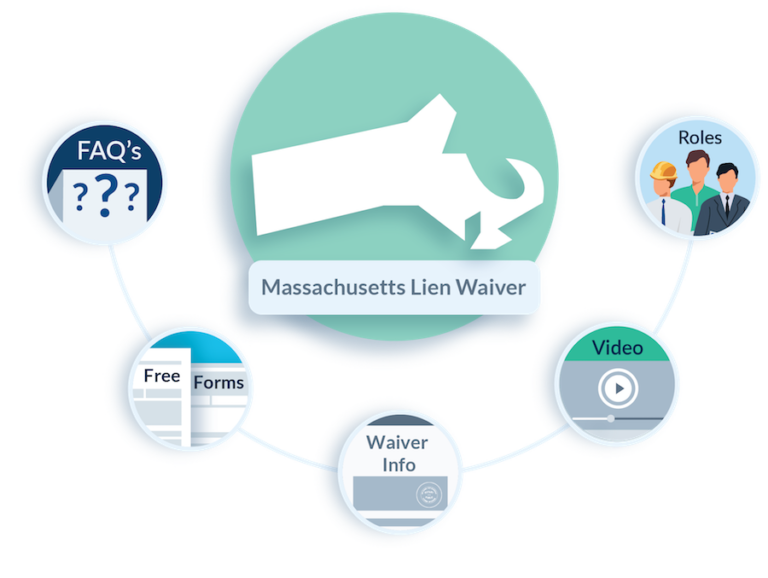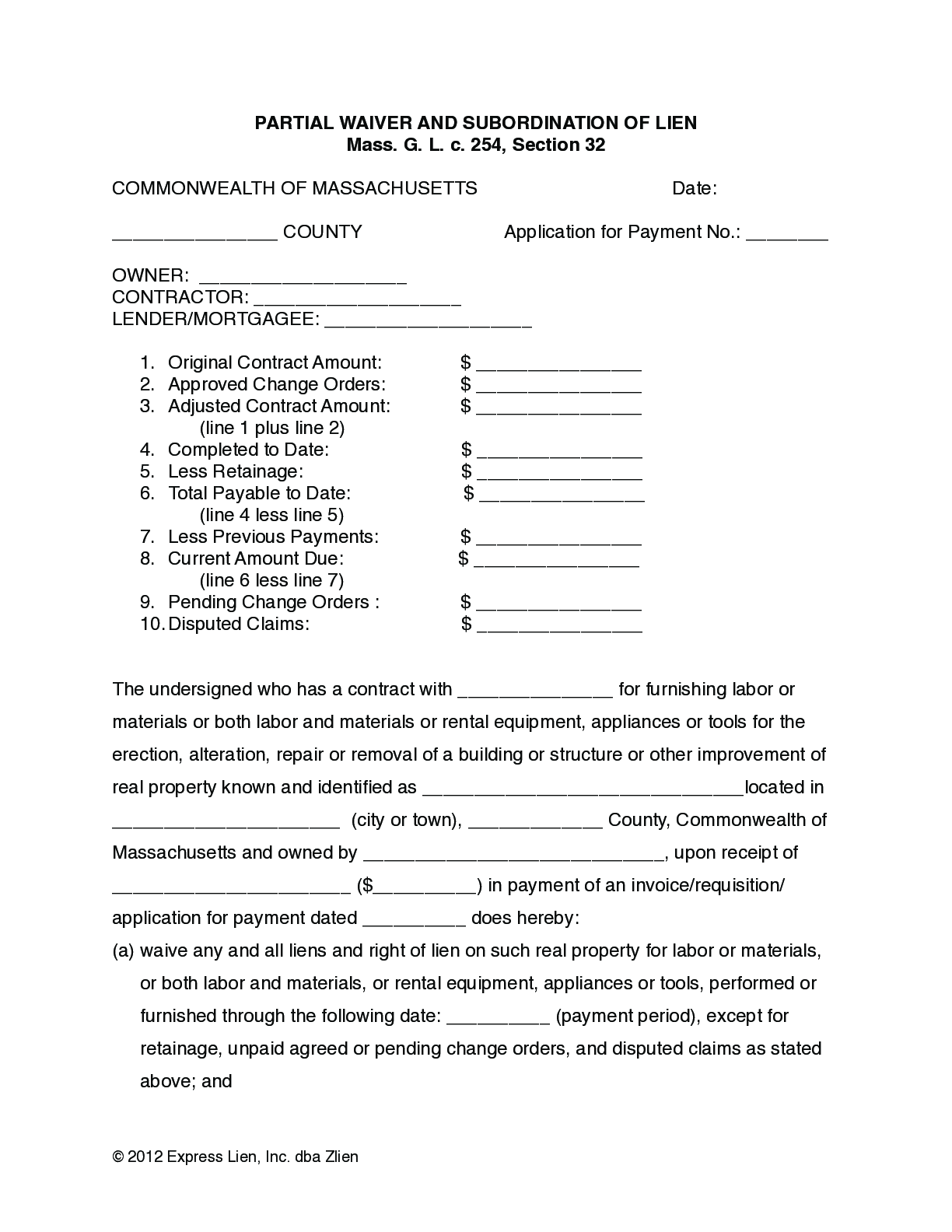Massachusetts Lien Waiver Rules
- Rules At A Glance
- Top Links
Specific Form Required
Massachusetts requires specific forms to be used by GCs in exchange for progress payments. All other lien waivers are unregulated.
Notarization Not Required
Lien waivers in Massachusetts do not need to be notarized, but they must be signed “under the penalties of perjury.”
Can Waive Rights in Contract
If the waiver in the contract is in the required statutory form, and signed under the penalty of perjury, there is no prohibition to including the waiver in with a contract.
Can Waive Rights Before Payment
If the waiver is valid and enforceable, lien rights can be waived prior to payment.
Lien waivers are pretty complex documents. But they are also unassuming because of how frequently they get exchanged on construction jobs across the country, and in Massachusetts. A lien waiver is basically a receipt that payment has been made for work or materials on a job. These documents are exchanged at the time of payment and are commonly attached to subcontractor pay applications or vendor invoices.
There are different types of lien releases for different types of situations. And these documents have significant consequences for everyone on a job — as it connects directly to everyone’s right to cash! Also, one pesky aspect of lien waivers is that the process of sending, requesting, tracking, and collecting lien waivers is an administrative pain that slows down the payment on a project.
Knowing everything you can about lien waivers will allow you to make your process faster. And if your process is faster, your cash will move faster; and that’s good news for everyone on the project!
- For more on lien waivers in general, see: The Ultimate Guide to Lien Waivers in Construction
Massachusetts Lien Waiver Laws
Massachusetts is just one of 12 states that provide statutory lien waiver forms and have specific lien waiver laws; sort of. MGL ch. 254 §32 provides a statutory form for a Partial Waiver and Subordination of Lien to be used by general contractors.
All other types of lien waivers in MA are unregulated. This means the state does not have specific laws regulating the exchange of lien waivers on construction projects, or the specific forms themselves. The lack of regulation makes exchanging lien waivers more difficult in Massachusetts, and riskier. MA contractors, subs, and suppliers should thoroughly review the language of the waiver to ensure that they aren’t waiving more than intended. This slows down the construction payment process. Plus, lien waivers can be a source of confusion with lots of room for error.
Below are some frequently asked questions about the lien waiver laws and requirements in Massachusetts.

